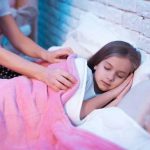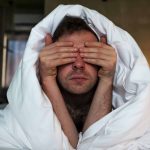The National Sleep Foundation’s latest Sleep in America Poll reveals a strong link between healthy sleep habits and reduced depressive symptoms in American teens, with most teens practicing good sleep behaviors showing no significant signs of depression.
This year’s poll focused on exploring the connection between sleep health and mental health in American teens. Results from this study in teens found that healthy sleep behaviors are closely linked to mental health in teens. In fact, nearly 80% of teens who earn a grade of “B” or higher for practicing healthy sleep behaviors are also free of significant depressive symptoms.
Additional key results from the representative, population-level research show:
- Eight out of every 10 teens don’t get enough sleep.
- The typical teen gets an “F” grade for practicing healthy sleep behaviors.
- Teens who have trouble falling or staying asleep two or more nights a week have significantly more depressive symptoms.
- Almost three-fourths of teens say their emotional well-being is negatively impacted when they sleep less than usual.
These results expand the base of knowledge about the connection between sleep health and mental health in the American public. In 2023, the Sleep in America Poll highlighted this similar connection in the general United States adult population. As the United States continues to face a mental health crisis, teens are in a particularly unenviable position, facing unique challenges and with unique sleep needs.
“We’ve continued to emphasize for the public that sleep is critical for our health and well-being,” says John Lopos, National Sleep Foundation CEO, in a release, “and in the context of the mental health crisis it’s important to put more evidence behind the strong connection with sleep, especially in our kids. This is a call to action for teens, families, educators, communities, and policymakers. What’s encouraging is we see where healthy sleep fits.”
An annual survey, the Sleep in America Poll is one of the longest-running records capturing US perceptions, attitudes, and trends in sleep health. The 2024 report combined results from a variety of sleep health tools, including the National Sleep Foundation’s Sleep Health Index, Sleep Satisfaction Tool, and its Best Slept Self Questionnaire, to assess how teens sleep and the PHQ-A to evaluate depressive symptoms in teens.
“As a licensed clinician and a parent, the time is now to think about the important two-way connection between our sleep and mental health. Helping teens build healthy sleep habits can have a lasting, positive impact on their physical and mental health,” says Joseph Dzierzewski, PhD, vice president of research and scientific affairs at the National Sleep Foundation, in a release.
Photo 160698340 © Valerii Honcharuk | Dreamstime.com




Leave a Reply